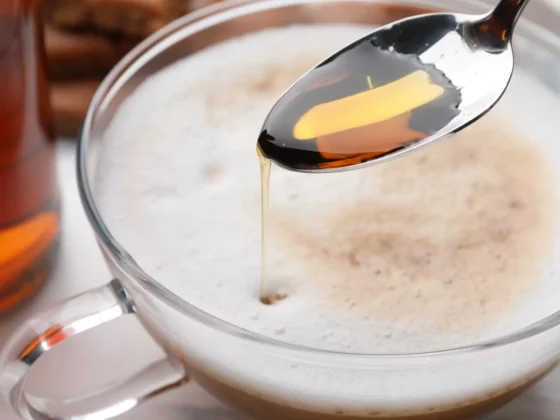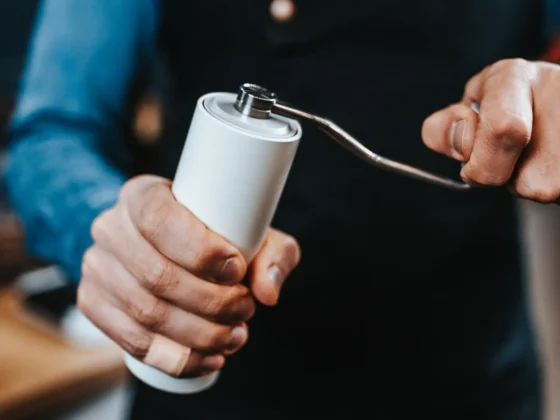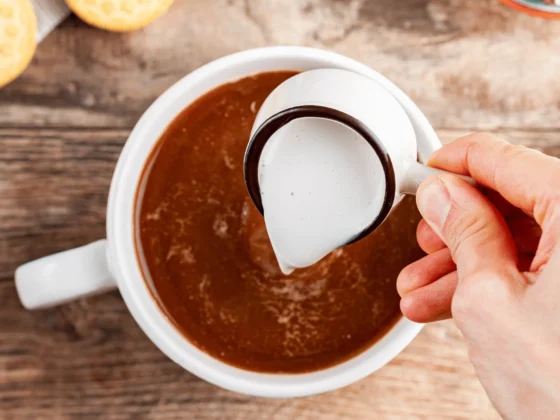Wisdom teeth removal is a procedure that a considerable number of individuals experience throughout their lifetime. Following the operation, it is vital to adhere to proper care instructions to prevent complications and guarantee a seamless healing process. A query that numerous individuals inquire about is ‘can you drink coffee after wisdom teeth removal?’. The response to this inquiry is not as straightforward as one may anticipate. Although coffee is a popular beverage among many, it is imperative to comprehend the possible advantages and drawbacks of consuming coffee while in the recovery period. In this write-up, we will dive into the guidance of professionals on the permissibility of drinking coffee after wisdom teeth removal, along with strategies to ensure a smoother healing process.
Coffee After Wisdom Teeth Removal – Key Takeaway
- Avoid drinking coffee or hot beverages after wisdom teeth removal to prevent slowing down the healing process and increasing the risk of complications.
- The timeframe for when you can start drinking coffee again after wisdom teeth removal varies based on your healing and the type of procedure performed.
- Follow your oral surgeon’s instructions for a smooth recovery after wisdom teeth removal, including managing pain, eating soft foods, and practicing good oral hygiene.
- Although rare, be aware of potential problems after wisdom teeth removal, such as excessive bleeding, swelling, pain, and numbness.
- Rest and avoid physical activity for the first few days after surgery and gradually resume normal activities as your recovery progresses.
- Enjoy alternatives to coffee during your recovery, like herbal tea, smoothies, and cold drinks.
- Follow expert tips for a faster recovery after wisdom teeth removal and enjoy your favorite beverages, like coffee, in no time.
The Importance of Proper Care After Wisdom Teeth Removal
Wisdom teeth removal is a surgical procedure that necessitates proper care and attention during the recovery period. (1) The first few days after the surgery are pivotal, as they determine how well and how quickly you heal. Appropriate care can help mitigate pain, decrease the likelihood of complications, and promote faster healing. In this section, we will discuss why proper care is crucial after wisdom teeth removal.
The Risks of Not Following Post-Op Care Instructions
Not following post-operative care instructions can have severe consequences, such as infection, excessive bleeding, and dry socket. A dry socket is an uncomfortable situation that arises when the blood clot, which formed following a surgical procedure, becomes displaced, leaving the underlying bone and nerve endings exposed. (2) This condition can be excruciating and protract the healing process. Compliance with the instructions provided by your oral surgeon can help forestall these risks and ensure a smooth recovery.

How to Ensure a Smooth Recovery
To ensure a smooth recovery following wisdom teeth removal, it’s imperative to carefully follow the instructions provided by your oral surgeon. Here are some tips for a seamless recovery: (3)
- Rest and avoid physical activity for the initial few days after the surgery.
- Apply ice packs to your face to reduce swelling and pain.
- Take any prescribed pain medication as directed.
- Avoid hot, spicy, or crunchy foods for the first few days after surgery.
- Drink plenty of fluids, but avoid using a straw.
- Keep your mouth clean by rinsing gently with saltwater several times a day.
- Avoid smoking and drinking alcohol, as they can delay healing and increase the risk of complications.
By complying with these tips, you can ensure a smooth recovery after wisdom teeth removal and relish your preferred beverages, such as coffee, in no time.
Can You Drink Coffee After Wisdom Teeth Removal?

Coffee is a well-known beverage that is widely consumed by individuals worldwide. However, after undergoing wisdom teeth removal, it is essential to exercise caution when consuming any food or beverage. This section delves into the complexity of the subject matter, exploring the intricacies of drinking coffee after wisdom teeth removal.
Other Drinks to Refrain From After Wisdom Teeth Removal

After wisdom teeth removal, indulging in coffee or any hot beverage immediately post-surgery is not recommended. The elevated temperature of the beverage can impede the healing process and potentially increase the likelihood of adverse effects, such as bleeding, inflammation, and discomfort. Furthermore, coffee has caffeine, which can trigger dehydration and, in turn, impede the healing process. Hence, refraining from consuming coffee until complete recovery is advised. Here are some drinks to avoid after wisdom teeth removal:
Carbonated Drinks
Steer clear of carbonated drinks like soda or sparkling water post-wisdom teeth removal. These drinks’ bubbles can lead to discomfort and pain in the surgical site. (4)
Alcohol
Eschew alcohol during the recovery phase after wisdom teeth removal. Alcohol can hinder the healing process, heighten the risk of bleeding and infection, and interact negatively with some medications prescribed post-surgery. (5)
Hot or Cold Drinks
Immediately following surgery, avoid consuming hot or cold drinks like tea or iced water. Hot drinks can hinder the healing process and raise the likelihood of bleeding, while cold drinks can elicit pain and discomfort in the surgical site. Instead, opt for cooler or lukewarm beverages for the initial days after surgery.
How Long You Should Wait Before Drinking Coffee

Following wisdom teeth removal, determining the appropriate time to resume your coffee consumption depends on several factors, such as the extent of your healing and the type of procedure performed. In most cases, it’s recommended that you abstain from consuming any drink, including coffee, for a minimum of 5 days after surgery. (6) Subsequently, you can gradually reintroduce coffee by taking small sips of cool or lukewarm coffee, and then increasing your intake as your recovery progresses.
It’s worth noting that the length of time required to heal varies from one individual to another, and it’s crucial to consult with your dentist or oral surgeon to determine when it’s safe to resume your coffee intake. Attempting to resume coffee consumption too early can lead to adverse effects such as bleeding, inflammation, or infection, which can significantly delay the healing process.
Alternatives to Coffee During Recovery

For avid coffee enthusiasts, the thought of forgoing their daily dose of caffeine during the recovery period may seem daunting. However, rest assured that there are numerous delectable alternatives to coffee that you can indulge in while healing. Here are a few options that you can consider:
Herbal Tea: Herbal teas such as chamomile, ginger, and peppermint not only taste fantastic but also possess anti-inflammatory properties that can promote healing and soothe discomfort. (7)
Smoothies: Smoothies offer a fantastic way of getting the nutrients your body needs while enjoying a scrumptious beverage. You can blend up fresh fruits, yogurt, and protein powder to make your smoothies, ensuring that you’re getting the necessary vitamins and minerals for optimal recovery. (8)
Cold Drinks: Cold drinks such as fruit juice are not only refreshing but also hydrating and gentle on your mouth.
Overall, abstaining from coffee immediately after wisdom teeth removal is crucial to minimize complications and promote faster healing. Gradually reintroducing coffee into your diet after a few days can help you enjoy your favorite beverage without jeopardizing your recovery. In the meantime, try some of the alternatives mentioned above to stay hydrated and nourished during your recovery period.
Optimal Foods and Drinks During Recovery

Post-wisdom teeth removal, consuming easy-to-chew, soft foods is vital in preventing irritation to the surgical site. Here are some suggested foods and drinks for the recovery phase:
Soups: Soups are packed with nutrients and are easy to swallow, making them a perfect post-surgery meal. Smooth, creamy soups such as tomato, chicken noodle, or vegetable soup are recommended.
Mashed Potatoes: Soft and easy to eat, mashed potatoes are an ideal option after wisdom teeth removal. Add some cheese or gravy for added flavor.
Yogurt: Choose plain or flavored yogurt without fruit chunks or pieces, as it is an excellent source of protein and calcium and is easy to consume after surgery.
Pudding or Jello: A sweet treat that is easy to swallow, pudding or Jello comes in a variety of flavors and is soft and gentle on the surgical site.
Water: To prevent dehydration, consume plenty of water. Stick to cool or lukewarm water, and forgo the use of a straw.
Overall, eating soft, easy-to-chew foods and drinking cool or lukewarm drinks can expedite healing after wisdom teeth removal. Follow these dietary recommendations while avoiding foods and drinks that can irritate the surgical site, ultimately ensuring a smoother and faster recovery. If you have any questions or concerns about your diet after surgery, consult with your oral surgeon.
Carefully Following Medication Instructions
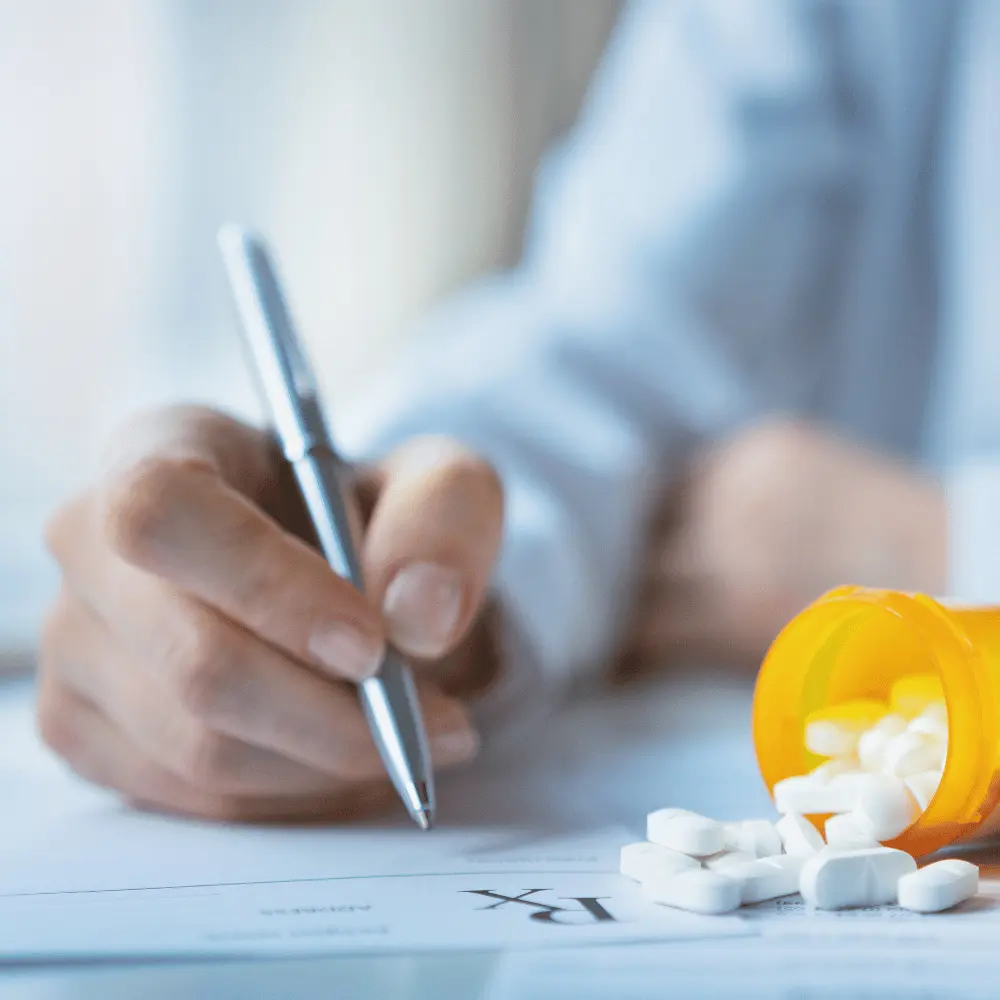
Post-wisdom teeth removal, it’s typical for your oral surgeon to prescribe pain medication or suggest over-the-counter pain relievers to alleviate discomfort. Adhering to medication instructions is imperative for a smoother recovery. Here are some tips for managing medication after wisdom teeth removal:
Thoroughly Follow Your Oral Surgeon’s Instructions: Your oral surgeon will provide specific instructions on when and how to take your medication. Diligently following these instructions is vital for optimal results.
Adhere to A Strict Medication Schedule: Consistently taking medication on a schedule can more effectively manage discomfort and pain. Utilize reminders or alarms to ensure timely consumption.
Avoid Missing Doses: Omitting a dose can cause a resurgence of pain and discomfort. If you forget to take your medication, do so as soon as you recall or as directed by your oral surgeon.
Remain Mindful of Potential Side Effects: Some medications can prompt side effects, such as sleepiness, nausea, and constipation. Thoroughly read the medication label and converse with your oral surgeon about any plausible side effects.
By meticulously following medication instructions, you can alleviate pain and discomfort more effectively, ultimately ensuring a smoother and speedier recovery following wisdom teeth removal. Reach out to your oral surgeon if you have any questions or concerns regarding medication or the recovery process.
Identifying Possible Complications Post-Surgery
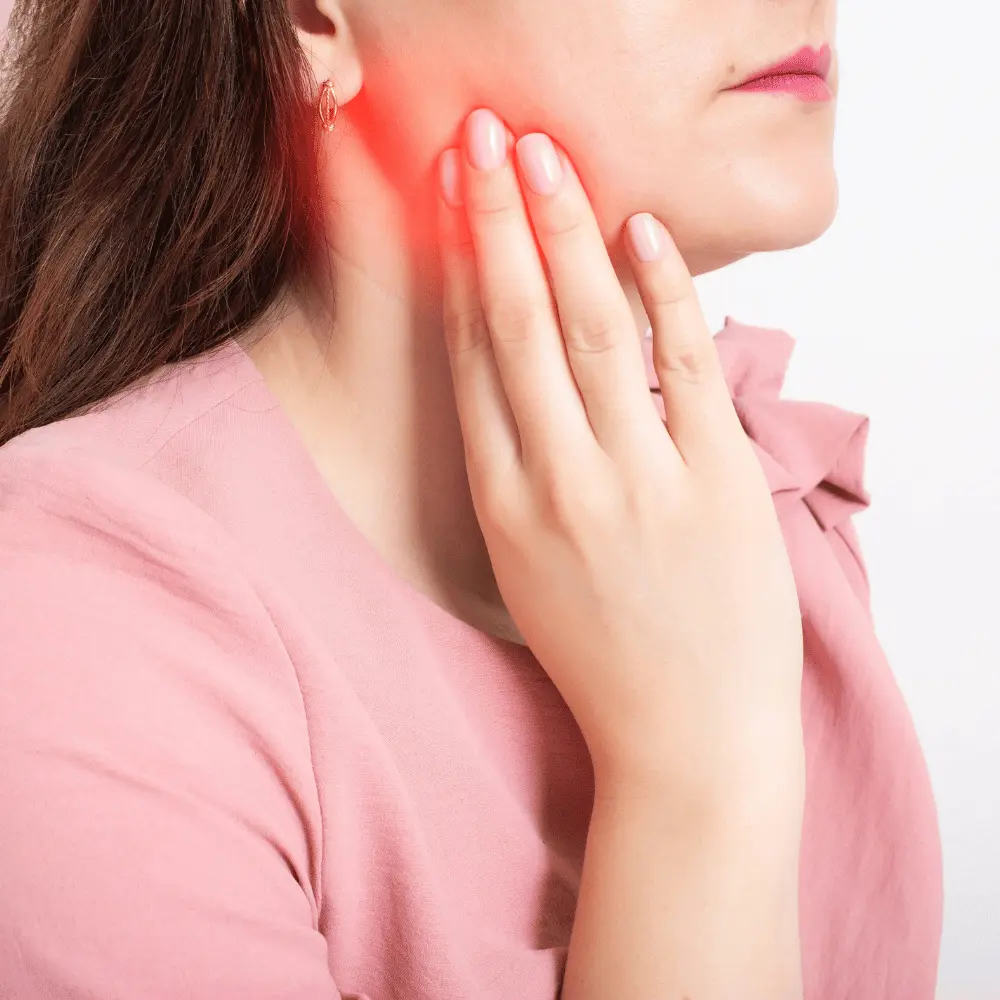
Although complications after wisdom teeth removal are uncommon, it’s essential to be aware of the signs and symptoms of potential problems. Some of the symptoms of complications after surgery include:(9)
Excessive Bleeding: It’s typical to experience some bleeding after surgery, but if you encounter excessive bleeding that doesn’t cease after applying pressure, immediate medical attention is necessary.
Swelling: Swelling is a common post-surgery symptom, but if it worsens or persists for more than a few days, it may indicate an infection or other complication.
Pain and Discomfort: It’s expected to experience some pain and discomfort after surgery, but if it intensifies or doesn’t improve with pain medication, it could indicate a complication
If you experience any of these symptoms or have any concerns about your recovery, it’s vital to contact your oral surgeon for guidance.
Resuming Normal Activities After Surgery

The recovery period after wisdom teeth removal varies depending on several factors, such as the complexity of the procedure and how well you follow post-operative care instructions. As your recovery progresses, you can gradually resume your normal activities. Here’s a general timeline of when you can resume normal activities:
Driving: If you’ve had sedation, avoid driving for the first 24 hours after surgery. After that, you can resume driving if you feel alert and comfortable.
Work and School: Depending on your recovery progress and job or school activities, the amount of time you need to take off work or school may vary. Generally, most people can return to work or school after a few days of rest, but it’s best to check with your oral surgeon for guidance.
Exercise and Physical Activity: Avoid strenuous exercise or physical activity for the first few days after surgery. Gradually resume light exercise, and increase your activity level as your recovery progresses.
Overall, monitoring your symptoms and contacting your oral surgeon if you have any concerns or questions can aid in identifying and addressing possible complications post-surgery. Adhering to post-operative care instructions and gradually resuming normal activities can promote faster healing and ensure a smoother recovery.
Conclusion
The matter of consuming coffee following wisdom teeth extraction is a commonly pondered inquiry among patients. The allure of indulging in your morning cup of joe may be strong, however, adhering to the aftercare instructions given by your dental practitioner or oral surgeon is of utmost importance. The initial 24-hour period after the procedure is of critical significance, as it provides the necessary timeframe for the formation and stabilization of the blood clot. Thus, it is typically advised to abstain from imbibing hot beverages, such as coffee, within this time frame.
Around 5 days after surgery, it may be permissible to consume coffee, but with a level of mindfulness and awareness regarding the temperature and possible irritation that may occur in the vicinity of the extraction site. By properly attending to the requisite post-operative care and diligently following the guidance of expert medical professionals, the recuperation process post-wisdom teeth extraction can be made smoother and swifter.
FAQ
What Are the Signs of a Complication After Surgery?
Manifestations of postoperative complications may encompass an elevated body temperature, excruciating pain, copious bleeding or discharge emanating from the wound, tiredness, and jaw stiffness. If you encounter any of these symptoms, it is imperative to promptly notify your physician.
When Can You Resume Normal Activities After Surgery?
The timetable for resuming normal activities after surgery is predicated on the type of surgery and the overall health status of the individual. In general, it is crucial to circumvent arduous physical activity and the lifting of ponderous objects for several weeks postoperatively to facilitate bodily recuperation. Your physician will furnish you with specific guidelines on the time frame to recommence diverse activities.
Can I drink coffee after wisdom teeth removal?
It is typically recommended to abstain from drinking coffee or other heated beverages for the initial 24 hours following wisdom teeth removal to avert disrupting the blood clot that forms at the site of extraction. After the first day, it may be feasible to consume coffee, but it is advisable to consult with your dentist or oral surgeon for individualized recommendations.
What should I avoid after wisdom teeth removal?
Following wisdom teeth removal, it is imperative to avoid smoking, utilizing a straw, expectorating, and consuming hard, crunchy, or chewy foods that can disrupt the blood clot and impede healing. It is also paramount to heed any additional instructions provided by your dentist or oral surgeon for postoperative care.
How can I speed up my recovery after wisdom teeth removal?
To accelerate your convalescence following wisdom teeth removal, it is essential to rest, avoid strenuous physical activity, and comply with the postoperative directives given by your dentist or oral surgeon. This may entail taking analgesics, applying ice to the affected area, and consuming soft foods that are facile to masticate and ingest.
When can I start brushing my teeth after wisdom teeth removal?
It is generally safe to commence brushing your teeth the day following wisdom teeth removal, but it is crucial to be gentle around the extraction site to evade disturbing the blood clot. Your dentist or oral surgeon may advocate a specific type of toothbrush or mouthwash to use during the healing process.









